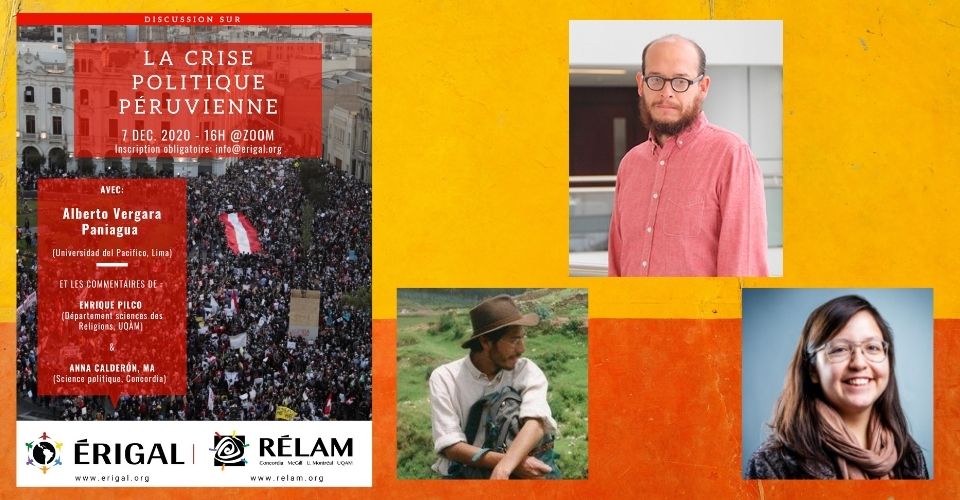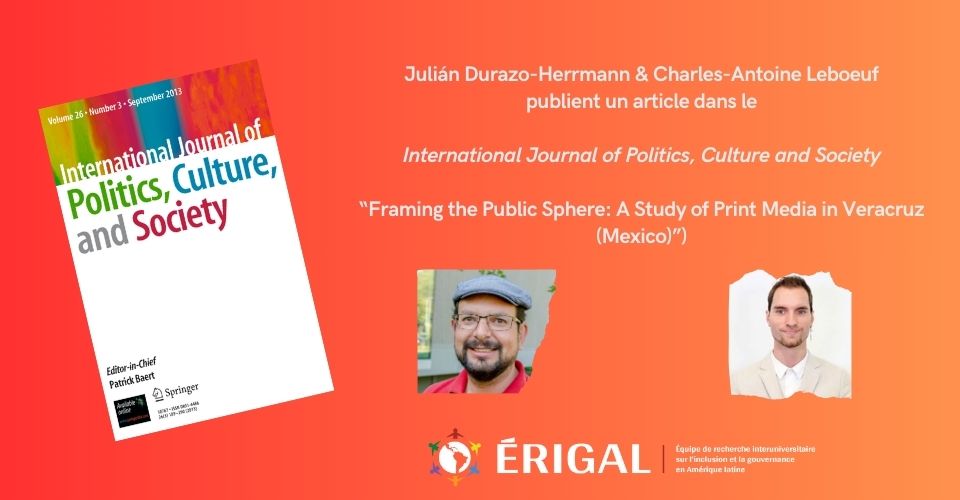The Peruvian Political Crisis: discussion with Alberto Vergara Paniagua, Enrique Pilco and Anna Calderón

In the midst of the political crises in Peru, ERIGAL, in collaboration with RELAM, organized a discussion with Alberto Vergara Paniagua (Universidad del Pacífico, Lima) and comments from Enrique Pilco (UQÀM) and Anna Calderón (Concordia, former ÉRIGAL member).
Alberto Vergara Paniagua painted a tense portrait of the country. While Peru has had three presidents in the space of a few weeks since November 9 (Martín Vizcarra deposed by Congress on November 9, Manuel Merino who took power for five days and was forced to resign, and then Francisco Sagasti following Merino's resignation), the country was at the same time facing the pandemic that was affecting the entire world. Vergara mentioned that the management of the pandemic crisis was very laborious, which explains, among other things, how results were obtained showing that about 66% of Peruvians say they know someone who died from COVID-19.
Vergara presented the roots of the current political crisis and mentioned the possible ways out of it.
Enrique Pilco commented on the new kinds of mobilizations in the streets related to the younger generation of demonstrators. In particular, he insisted on the use of music as a means of protest. He mentioned actions such as the revival of traditional songs with lyrics related to the demands of the demonstrators, or the use of rap music to denounce the corruption that plagues the Peruvian political system.
Anna Calderón, finally, explained that the generation of young Peruvians has known a history of their country different from previous generations: a country without active terrorism, governments more corrupt than others, and whose presidents end up in prison, but also the influence of the demonstrations that take place in neighboring countries such as Chile. She then explained how the Peruvian community, especially youth, in Toronto and Montreal have organized themselves to make their voices heard and participate in the mobilization from outside the country.
This discussion provided a detailed understanding of the current situation in Peru and allowed us to learn more about a political crisis situation that has received very little international media coverage.


